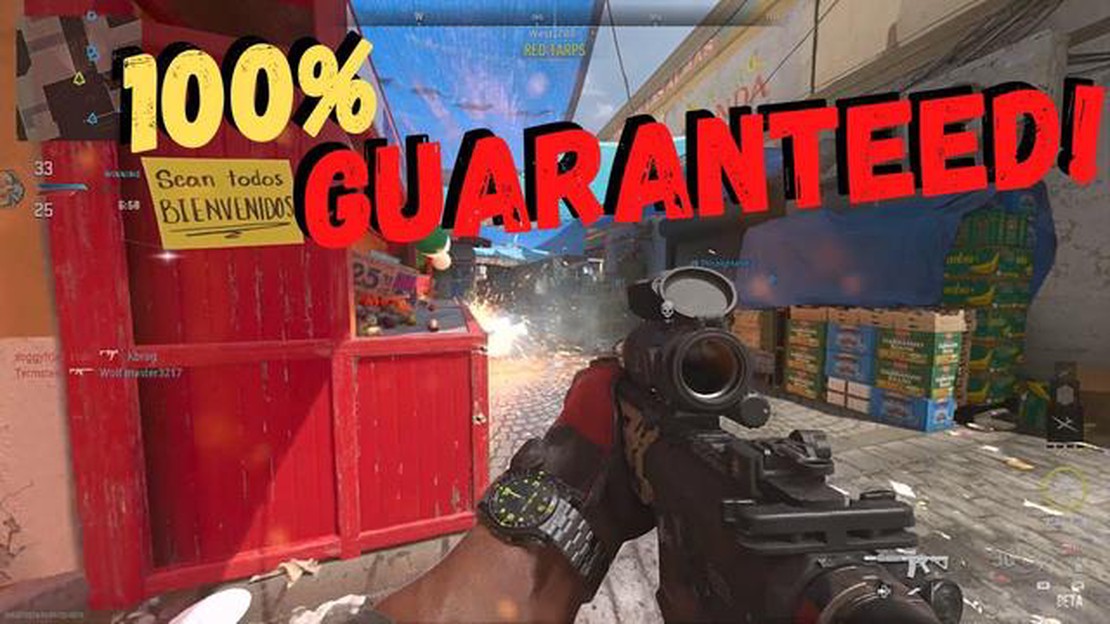Discover the Latest Among Us Rip-Offs Sweeping the Gaming World
Here come the Among Us rip-offs Among Us, the wildly popular online multiplayer game developed by InnerSloth, has taken the gaming world by storm. …
Read Article
Call of Duty is a popular first-person shooter video game that has gained a huge following over the years. However, one of the common issues that players face is lag. Lag can be frustrating and can greatly affect the gameplay experience. In this article, we will explore the possible causes of lag in Call of Duty and discuss some solutions to help improve your gaming experience.
There are several reasons why Call of Duty may be lagging. One possible cause is a slow internet connection. If you are playing the game online and your internet connection is not stable or fast enough, it can result in lag. Another reason could be the server you are connected to. If the server is overloaded or experiencing technical difficulties, it can cause lag for all players connected to it.
Another possible cause of lag in Call of Duty is your computer’s hardware. If your computer does not meet the minimum system requirements to run the game smoothly, it can result in lag. This can include having an outdated graphics card, insufficient RAM, or a slow processor. It is important to ensure that your computer meets the recommended specifications for the game to run smoothly.
So, what can you do to fix lag in Call of Duty? One solution is to check your internet connection. Make sure you have a stable and fast internet connection to reduce lag. You can also try connecting to a different server to see if that improves your gameplay. Additionally, upgrading your computer’s hardware, such as getting a faster processor or more RAM, can help improve the performance of the game and reduce lag.
In conclusion, lag in Call of Duty can be caused by various factors such as a slow internet connection, server issues, or inadequate hardware. By identifying the possible causes and implementing the suggested solutions, you can significantly reduce lag and enhance your gaming experience. So, why wait? Take action now and enjoy lag-free Call of Duty gameplay!
Call of Duty is a popular first-person shooter game that has gained a large player base worldwide. However, some players may experience lag while playing the game. Lag can be frustrating and can significantly impact the gaming experience. There are several possible causes for Call of Duty lag, including:
To resolve the lag issue in Call of Duty, here are some possible solutions:
By addressing these possible causes and implementing the suggested solutions, players can potentially reduce or eliminate lag in Call of Duty, leading to a smoother and more enjoyable gaming experience.
Call of Duty is a popular multiplayer video game, but sometimes players may experience lag, which can be frustrating. There can be various causes for lag in Call of Duty, including:
Read Also: The Steam subreddit: A sudden fascination with steam and steam trains
Addressing these possible causes of lag can help improve your gaming experience in Call of Duty. It is important to troubleshoot and identify the specific cause of lag for a more targeted solution. Exploring various solutions like optimizing settings, upgrading hardware, or contacting your internet service provider can help minimize or eliminate lag in Call of Duty.
If you are experiencing lag while playing Call of Duty, it can be incredibly frustrating and can negatively impact your gameplay experience. However, there are several possible solutions you can try to help alleviate the lag and improve your gaming performance:
Read Also: What to Expect from Destiny 2 Lightfall: Latest Updates and Details
Remember, the effectiveness of these solutions may vary depending on your specific hardware and network setup. It’s recommended to try different solutions and see which ones work best for your situation. Additionally, keeping your game and drivers updated can also help prevent lag in the future.
Call of Duty might lag due to various reasons such as high ping, slow internet connection, outdated hardware, or server issues.
Ping is the response time between your computer and the game server. A high ping can result in lag as the information takes longer to transmit back and forth.
You can improve your internet connection for Call of Duty by using a wired connection instead of Wi-Fi, closing unnecessary background applications, optimizing your router settings, or upgrading to a faster internet plan.
Yes, outdated hardware such as an old graphics card or insufficient RAM can cause Call of Duty to lag. Upgrading your hardware or lowering the game settings can help improve performance.
If Call of Duty’s server is experiencing issues, you can try restarting the game, checking the game’s official website or social media for any announcements, or contacting the game’s support team for assistance.
Yes, there are various software solutions to fix Call of Duty lag such as updating your graphics drivers, optimizing the game’s settings, or using network optimization software.
Here come the Among Us rip-offs Among Us, the wildly popular online multiplayer game developed by InnerSloth, has taken the gaming world by storm. …
Read ArticleWhy Is My Ping So High In Mobile Legends? Mobile Legends: Bang Bang is a popular multiplayer online battle arena (MOBA) game where players go …
Read ArticleDeathloop review Deathloop is the highly anticipated first-person shooter game developed by Arkane Studios and published by Bethesda Softworks. Set in …
Read ArticleWhere To Find Whopperflowers Genshin Impact? Whopperflowers are a type of enemy and crafting material in Genshin Impact. They can be found in various …
Read ArticleGuide for Connecting the Nintendo Switch Pro Controller to a PC: Step-by-Step Instructions The Nintendo Switch Pro controller is a versatile gaming …
Read ArticleFortnite’s new Jonesy skin takes fashion advice from sad Thor Fortnite has released a new skin that fans are comparing to the sad version of Thor from …
Read Article